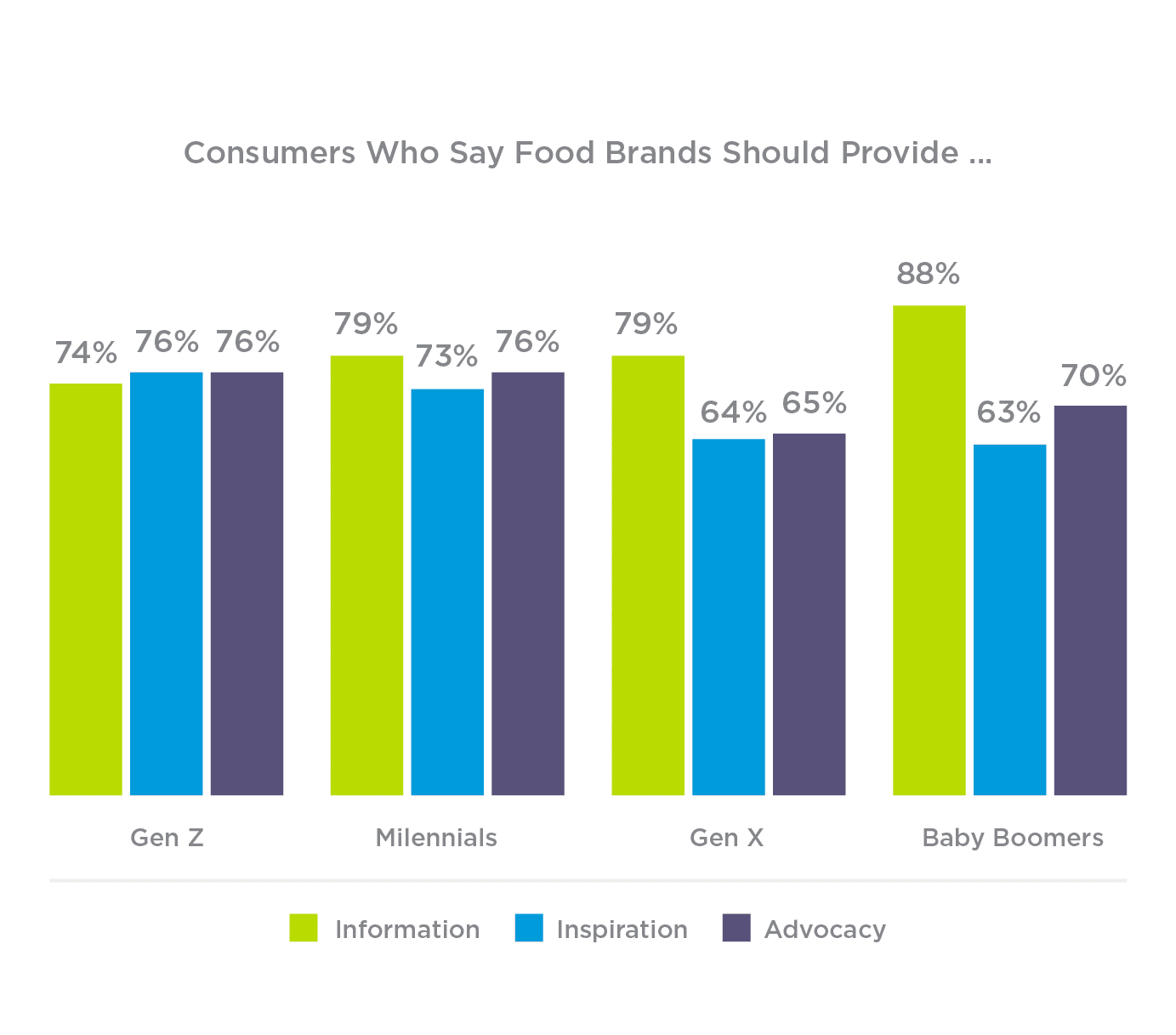When it comes to food brands, consumers generally agree that elements of mentor branding are important. Consumers like to see brand strategies that include providing value-added information, inspiring customers, and advocating for customers and their interests.
Certain aspects of mentor branding are viewed differently by customers depending on their generation.
Value-Added Information
All generations agree that food brands should provide value-added information about products and services, though Baby Boomers – at 88% — have the strongest agreement. Gen X and Millennials are next at 79%, followed by Gen Z (74%).
Inspiration
In contrast, younger generations want food brands to inspire. More than three-quarters of Gen Zers (76%) seek inspiration from food brands, followed by Millennials at 73%. A majority of older generations also says food brands should inspire, though that agreement is somewhat lower for Gen X (64%) and Baby Boomers (63%).
Advocacy
Younger generations found advocacy more important as well. Seventy-six percent of Millennials and Gen Z said that food brands should advocate for consumers. Both generations also led in saying they purchase food brands based on advocacy.
Should Food Brands Embrace Mentor Branding?
While consumers across generations generally agree that elements of mentor branding are important for food brands, they value aspects of mentor branding differently.
By understanding these generational differences, food brands can determine if mentor branding makes sense for their marketing strategy.

